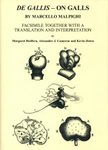![Toxicology in the Middle Ages and Renaissance Toxicology in the Middle Ages and Renaissance]()
Click to have a closer look
About this book
Contents
Customer reviews
Biography
Related titles
About this book
Toxicology in the Middle Ages and Renaissance provides an authoritative and fascinating exploration into the use of toxins and poisons in the Middle Ages and Renaissance. Part of the History of Toxicology and Environmental Health series, this volume is a follow-up, chronologically, to the first volume which explored toxicology in antiquity (now in its second edition).
The book approximately covers the 1100s through the 1600s, delving into different aspects of toxicology, such as the contributions of scientific scholars of the time, sensational poisoners and poisoning cases, as well as myths. Historical figures, such as the Borgias and Catherine de Medici are discussed. Toxicologists, students, medical researchers, and those interested in the history of science will find insightful and relevant material in Toxicology in the Middle Ages and Renaissance.
Contents
1. Poison and Its Dose: Paracelsus on Toxicology
2. The Golden Age of Medieval Islamic Toxicology
3. Maimonides' Book on Poisons and the Protection Against Lethal Drugs
4. Pietro d'Abano, De venenis: Reintroducing Greek Toxicology into Late Medieval Medicine
5. The Case Against the Borgias: Motive, Opportunity, and Means
6. Aqua Tofana
7. Poisons and the Prince: Toxicology and Statecraft at the Medici Grand Ducal Court
8. Georgius Agricola, a Pioneer in the Toxic Hazards of Mining, and His Influence
9. Jan Baptist Van Helmont and the Medical-Alchemical Perspectives of Poison
10. Origin of Myths Related to Curative, Antidotal and Other Medicinal Properties of Animal "Horns" in the Middle Ages
11. Animal Stones and the Dark Age of Bezoars
12. Fossil Sharks' Teeth as Alexipharmics
13. Catherine La Voisin: Poisons and Magic at the Royal Court of Louis XIV
14. A Late Medieval Criminal Prosecution for Poisoning: The Failed Murder Trial of Margarida de Portu (1396)
15. Animal Venoms in the Middle Ages
16. Medical Literature on Poison, c. 1300-1600
Customer Reviews
Biography
Philip Wexler is a Technical Information Specialist at the National Library of Medicine's (NLM) Toxicology and Environmental Health Information Program. A recipient of the NLM Regents Award for Scholarly or Technical Achievement and the Distinguished Technical Communication Award of the Washington chapter of the Society for Technical Communication, he is team leader for the development of the ToxLearn online multi-module tutorials, a joint activity with the SOT. Mr. Wexler is also project officer for the LactMed file on drugs and lactation, and the IRIS and ITER risk assessment databases. He is federal liaison to the Toxicology Education Foundation (TEF), past Chair of SOT's World Wide Web Advisory Team, and past President of its Ethical, Legal, and Social Issues Specialty Section. Mr. Wexler led the World Library of Toxicology project prior to its migration to the INND/Toxipedia group, and remains a federal liaison to the project. He was a member of the Education and Communications Work Group of the CDC/ATSDR's National Conversation on Public Health and Chemical Exposure. A co-developer of the Toxicology History Room, he is co-founder and federal liaison to the Toxicology History Association. Mr. Wexler has lectured and been published widely in the U.S. and abroad on toxicology and toxicoinformatics. He is the Editor-in-Chief of three editions of the Encyclopedia of Toxicology (Third Edition, 2014) and four editions of Information Resources in Toxicology (Fourth edition, 2009), as well as numerous other books and articles. In 2010, he was named the recipient of the US Society of Toxicology's Public Communications Award. Mr. Wexler also serves as an associate editor for a toxicology journal.



































